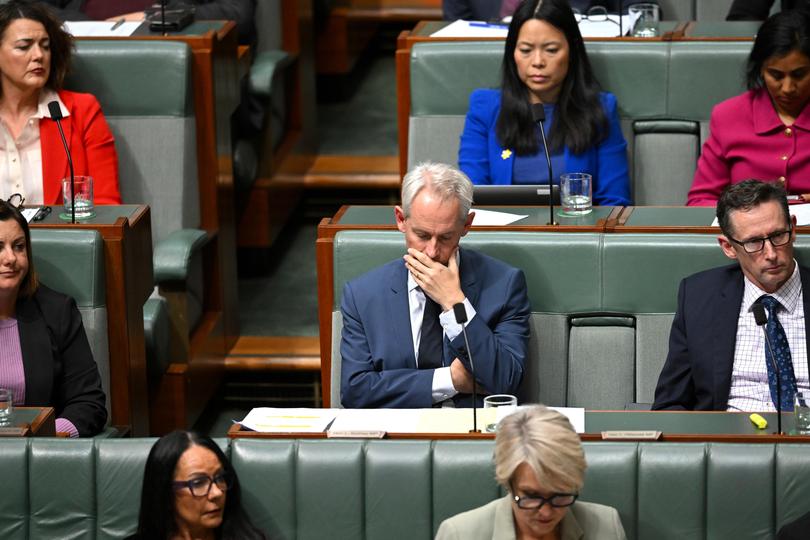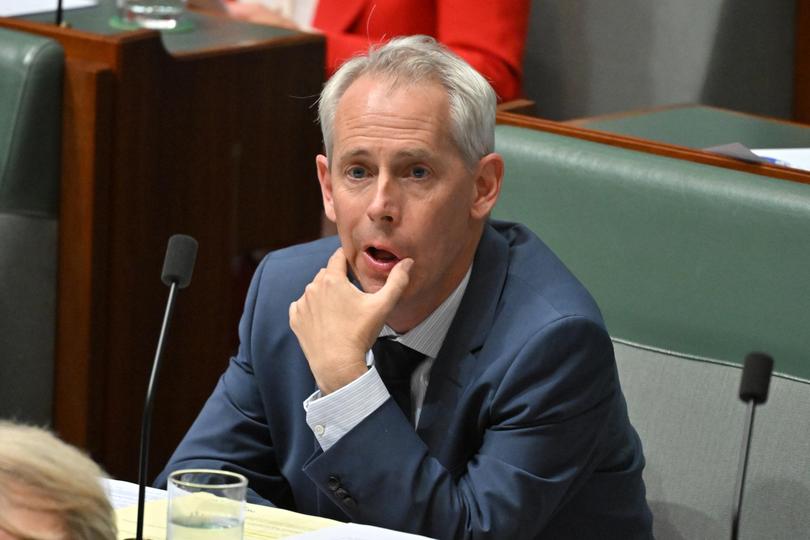Andrew Giles visa debacle threatens to deepen rift with NZ as Kiwi deputy PM wants urgent talks on issue
Embattled Immigration Minister Andrew Giles has vowed to stay in his post as New Zealand has called for urgent talks over the latest twist in Australia’s visa debacle.
Under-fire Immigration Minister Andrew Giles has insisted he won’t quit his post as tensions deepened between Australia and New Zealand over the spiralling visa scandal that has led to dozens of deportations of serious criminals being overturned.
The trouble began back when the Federal Government was scrambling to rewrite a contentious immigration direction so that overseas-born criminals could more easily be returned to their country of origin. That was when New Zealand asked Australia not to send them Kiwi crims who had broken the law here.
Mr Giles has faced mounting criticism and calls for his resignation this week amid twin crises in his portfolio. They included revelations a direction he issued had led to as many as 60 serious criminals having their deportations overturned alongside the ongoing fallout over offences committed by a cohort of non-citizens released by a High Court ruling.
Sign up to The Nightly's newsletters.
Get the first look at the digital newspaper, curated daily stories and breaking headlines delivered to your inbox.
By continuing you agree to our Terms and Privacy Policy.In the first matter, Labor softened the immigration laws last year with a measure known as Direction 99 at the request of former New Zealand prime minister Jacinda Ardern, who had complained that Australia was forcing our neighbour to repatriate criminals who had spent the bulk of their lives on Aussie soil.
The direction to place weight on non-citizens’ ties to Australia has led to criminals including rapists and child sex offenders having their visas reinstated by the Administrative Appeals Tribunal.

Mr Giles has been forced into a backflip on the direction and on Wednesday announced it was being revised, but the misstep has already opened Labor to relentless attacks from the Opposition and distracted from Government efforts to bed down the May Budget.
Opposition Leader Peter Dutton ramped up the assault on Thursday, accusing Prime Minister Anthony Albanese of putting “his close and sycophantic relationship with Jacinda Ardern ahead of the safety of Australians”.
Mr Albanese described the new attacks from the Opposition as “absurd” and refused to outline talks held between Australia and New Zealand ahead of the law change. “What we do is we determine our own policy according to our own interests and that is what we have done,” Mr Albanese said.
It came as New Zealand Deputy Prime Minister Winston Peters requested urgent talks with his Australian counterparts.
“We accept that Australia has the right to determine what level of offending by non-citizens is unacceptable. But we do not want to see deportation of people with little or no connection to New Zealand, whose formative experiences were nearly all in Australia,” Mr Peters said.
“We note Prime Minister Albanese’s previous commitment to take a ‘common sense’ approach to the deportation of people to New Zealand who had effectively spent their entire lives in Australia. We intend to engage with Australia at a political level on this matter as soon as possible.”
The deportation saga came as the Albanese Government was forced to defend its handling of 153 non-citizens who were released after a High Court ruling last year that stated indefinite detention was unlawful.
Labor’s flat-footed response has drawn censure for several months and this week Mr Giles has been forced to defend how the Government has monitored the freed cohort.
It was revealed on Wednesday that two murderers have not been wearing ankle monitors. But Mr Giles said on Thursday that drones were being used to track others.
“There is a quarter of a billion dollars that we’ve invested in supporting our law enforcement agencies to enforce that and that’s enabled things like using drones to keep track of these people,” Mr Giles said on Sky News. “We know where they are.”

More than 150 people have been released since the High Court decision last year found indefinite detention is unlawful and some have gone on to commit serious crimes, including the bashing of Perth grandmother Ninette Simons, 73, and her husband.
Asked why some of the people weren’t being electronically monitored, Mr Giles replied the law required “individual circumstances” to be considered.
Mr Giles has cancelled eight visas, as he considers deporting about 30 people after an appeals tribunal allowed them to stay in Australia on the grounds of a directive he himself had signed off on.
Despite calls for his sacking, Mr Giles said he would not step down and Mr Albanese has backed his close friend and factional ally.
“I’m focused on outcomes, not political arguments ... relentlessly focusing day and night on ensuring that visas which need to be cancelled are cancelled,” Mr Giles said.
“I’ve got a job to do. There is so much to be done.”

